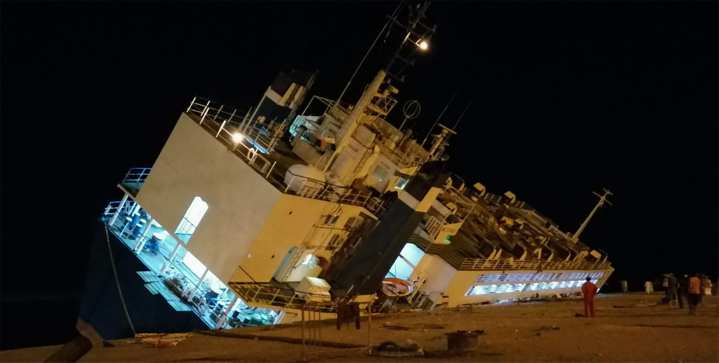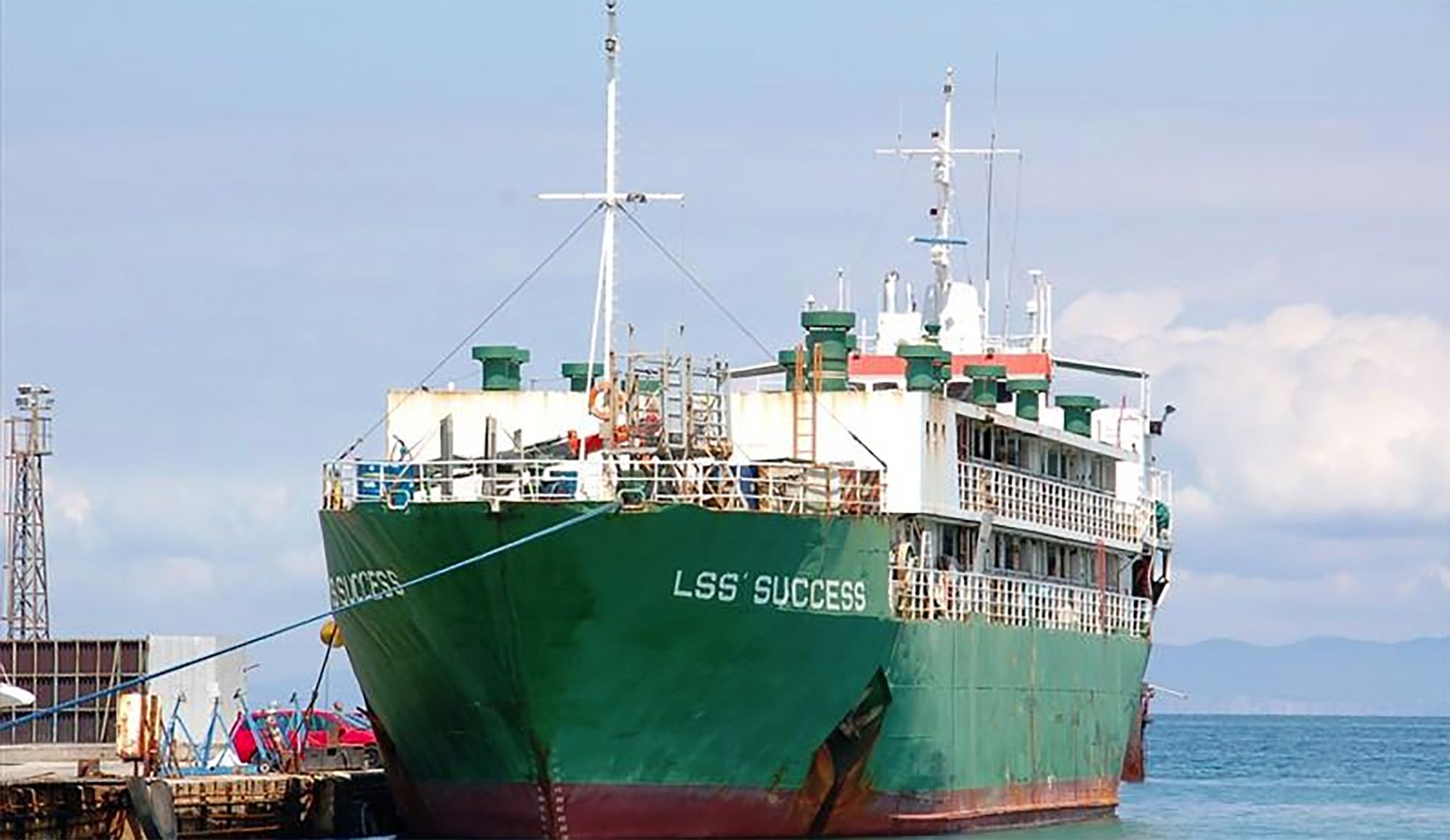LIVESTOCK FLEETS
Alarm bells ring after 15,000 sheep drown as transport ship capsizes in Port of Sudan

Meanwhile, the LSS Success, another live export vessel, is docked in the East London harbour and destined for Mauritius with a cargo of cattle. In 2019, it was placed on a detention list by European authorities because they deemed the vessel unfit to sail.
More than 15,000 sheep drowned last weekend when a ship capsized in the Port of Sudan and sank in its moorings. About 800 animals that were rescued are displaying symptoms of illness and are not expected to live.
Al Badri 1 was an ageing converted ro-ro (roll-on/roll-off) vessel. Images from before and after its conversion suggest that four extra decks were welded on above the ship’s main deck to add more space for livestock.
Livestock carriers are generally older than the average merchant ship, with the fleet exceeding 40 years. Almost all are conversions, often from ro-ro vessels.
The ships selected for conversion have usually already arrived at the normal age for demolition (about 30 years) when they begin their new life.
Detention list
Meanwhile, the LSS Success, another live export vessel, is docked in the East London harbour and destined for Mauritius with a cargo of cattle. In 2019, it was placed on a detention list by European authorities because they deemed the vessel unfit to sail.
Not long afterwards, the Success appeared in South Africa without intervention by local authorities.
The Success is 52 years old and well past her safe-use age. Another disaster is clearly on the cards.
Last year, it was responsible for the death of 40 cattle that died on board during export from South Africa to Mauritius. According to the vessel’s incident report, the cattle died from head and leg injuries or sea sickness because the vessel was unstable in rough weather.
A year earlier, the vessel was in trouble after a significant amount of drugs were found on board by Mauritian officials after a trip from South Africa.
According to the National Society for the Protection of Animals (NSPCA), the ship is a “rust bucket” and shouldn’t dare another live export journey risking the lives of thousands of animals as well as the crew.
In 2020, the NSPCA attempted to stop the proposed shipment of between 55,000 and 85,000 live sheep from South Africa to the Middle East.
“The conditions experienced by animals during long-distance sea voyages contravene many standards of South Africa’s Animal Protection Act 71 of 1962,” said the director of Humane Society International-Africa Tony Gerrans.
“Transporting tens of thousands of sentient animals on a vessel means they endure 21 days of being packed together in pens without proper food and care.
“They stand in their own excrement, breathe in ammonia which can lead to respiratory problems, are exposed to the perpetual noise of the ship’s motors and to heat stress which can be so extreme as to kill the animals, much like leaving a dog in a car on a hot day.”
In 2016, about 3,000 sheep died en route from Fremantle to Doha aboard the same ship – the Al Messilah – that was waiting in East London’s port in 2020 to load sheep.
“Every year, without fail, the live export industry causes one crisis after another at the expense of the lives of thousands of animals and even human beings,” said the NSPCA.
“Supporters of the live export trade need to re-evaluate live export when there is an alternative (exporting chilled meat).”
According to Professor Kristen Stilt, director of Harvard’s Animal Law & Policy Program: “The transport of chilled and frozen meat is the way that nearly all meat travels in commerce today. The idea of sending live animals is a holdover from a bygone era.”
“Judging by the average age of the 150-odd global livestock fleet,” said the NSPCA, “we expect these tragedies to escalate from their already unacceptable current sinking record.” DM/OBP
[hearken id=”daily-maverick/9419″]




















 Become an Insider
Become an Insider
Quite frankly, this is an unacceptable means of transporting meat from one continent to another! No live animals destined for slaughter should be transported in this inhumane manner and all citizens and arms of governments should work together to stop this horrendous and cruel practice!
They should be declared unfit and not allowed entry to harbours, alternatively impounded, no insurance allowed to cover transit, huge supplementary taxes placed on the export of live animals, etc.
shocking and shameful…
You fail to note that the sheep NEED to be transported alive – as they serve as sacrificial offers for Aid el Kebir, the end of the annual Hajj. When heads of a family traditionally slaughter a live animal by hand. Most of the meat is given to poorer members of a community. https://fr.wikipedia.org/wiki/A%C3%AFd_al-Adha